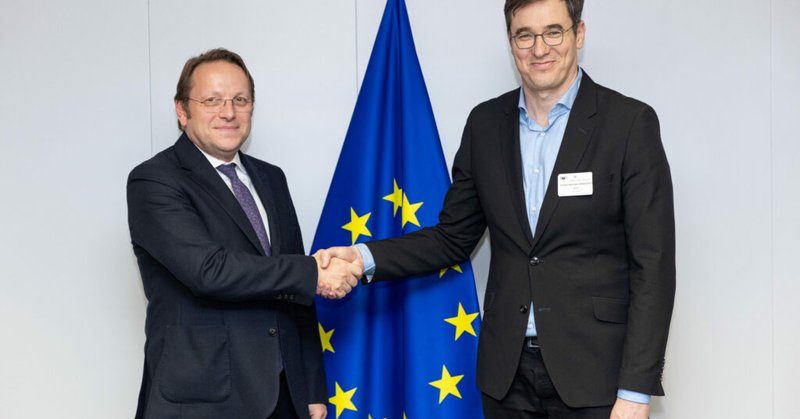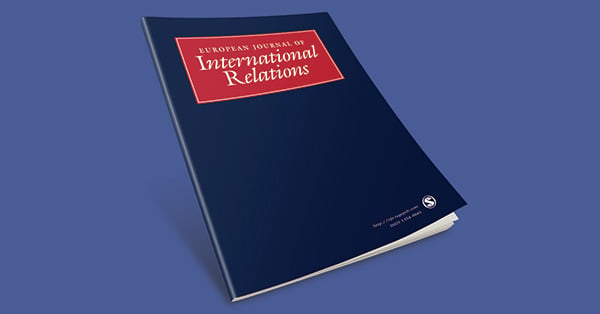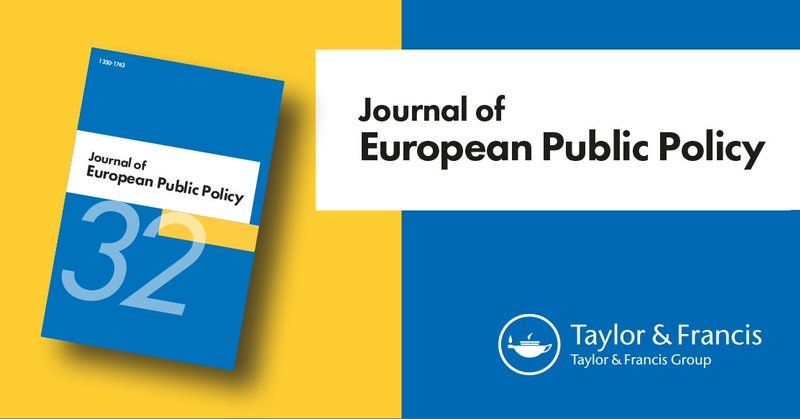
Monika de Silva
@MonikadeSilva
Followers
462
Following
2K
Media
14
Statuses
222
PhD researcher at @goteborgsuni. Research on international relations and European politics with focus on gender, diplomacy, and East-West dynamics.
Gothenburg
Joined November 2019
On 25 April, I successfully defended my PhD in political science. If your state happens to get sick, please call Dr. de Silva! Link to my dissertation "Gender Wars in Europe: Diplomatic Practice Under Polarized Conditions": https://t.co/4zyrQQaOmR
2
1
10
As we are all time and attention deprived to read full dissertations, here is a popular science summary of mine. https://t.co/8lN9RRMpTW
gu.se
Everyday dialogue between diplomats can help counter polarization on contentious issues such as abortion and gender equality. This is the conclusion of a new doctoral dissertation from the University...
0
0
1
A perfect read in the context of the banned Pride event in Hungary happening this week. Now, in a different legal context, we might learn where and how diplomats draw a line between non-interference and human rights. https://t.co/iYomUzsDpu
brusselstimes.com
Hungarian government warns EU diplomats against participating in Pride march scheduled for Saturday but banned by the police,
“Let’s not argue: diplomatic legal talk and the issues of abortion and same-sex partnerships” by @MonikadeSilva is out now in EJIR and available online! You can read the full article here: https://t.co/LwpBvIbrk7
0
0
1
I am particularly happy with this article because it allowed me to wear my lawyer hat and diplomacy scholar hat at the same time 🙂 It is also now the fourth and the last publication from my PhD dissertation (time to move on!).
0
0
0
Diplomatic legal talk is not 'mere talk' and matters for whether and how legal interpretations become international norms and what normative difference does to international relations. This is why we should pay more attention to diplomacy and its logics in socio-legal research.
1
0
0
In bilateral diplomacy it can take a form of navigation of legal principles through ambiguity which enables co-existence when argumentation is unlikely to be successful. This practice takes very interesting discursive forms which I analyse in the article.
1
0
0
International contestation around gender and sexuality norms is highly polarized and legalized, but the language of law is not always deployed "strategically". Appropriate use of legal talk differs between actors and sites.
1
0
0
In this piece I look at how legal language of human rights and national sovereignty is used in everyday diplomatic practice.
1
0
0
🚨 publication alert 🚨 Before everyone leaves for holidays...here is my fresh of the press article in @EuroJournIR
https://t.co/K0ZVuxYVu4
journals.sagepub.com
How does legal talk matter and how it is used in diplomatic practice? International law’s inherent openness to interpretation is an opportunity for states to sh...
1
1
4
Only a few days left to apply! Submit before 11 February: https://t.co/SnjiGZ0IJ7
Submissions are open for my workshop on everything ambiguous, liminal, and in-between about gender and sexuality in IR. Apply before 11 February: https://t.co/SnjiGZ1gyF More information:
0
0
0
Submissions are open for my workshop on everything ambiguous, liminal, and in-between about gender and sexuality in IR. Apply before 11 February: https://t.co/SnjiGZ1gyF More information:
📣 EWIS 2025 WORKSHOPS 📣 ✅ (WS H) International Politics of Gender and Sexuality: Is There Place for Ambiguity in a Polarized Context?
0
0
1
It calls for more research on the constitution of European and international meanings and reflection on the multi-discursiveness of “Europe”. Enjoy!
0
0
0
The article has a lot of cool empirics about history of gender equality discourse in Europe and diplomatic practice of the Council (based on interviews). It also looks at "gender equality" discourse as a status marker for states;
1
0
0
It finds that “gender equality” is a concept negotiated through bargaining between member states. Because of that, it can function as an ambiguous concept that accommodates different nationally situated lifeworlds. This relates to, but also goes beyond the 2020 “gender crisis”;
1
0
0
It brings meaning-making to negotiation theory and looks at international meaning as something that can emerge either from problem-solving or bargaining;
1
0
0
While most scholarship studies Europeanization of discourse (from “Europe” to states), this article looks at the constitution of meaning on the European level (from states to “Europe”);
1
0
0
🚨 NEW PUBLICATION ALERT 🚨 You can now find my article “Language-bargaining in the Council of the European Union: meaning negotiations and the concept of gender equality” in Journal of European Public Policy 🥳 https://t.co/bMdhdDdk36 A few key messages:
tandfonline.com
How do states negotiate meaning? Building on the empirical case of the contestation of the term ‘gender equality’ in the Council of the European Union, I show that the scholarship has so far lacked...
1
1
2
Please join @RahimeSKurum and me for the talk about my research on the crisis in the Council of the EU over the meaning of gender equality and the role of negotiators in resolving it. 28 November (Thursday), 12:30 CET Registration: https://t.co/PTzclhhNVo
0
1
4
In the @ERC_Research #StG panel SH1, there are no representatives from #CEE. Meanwhile, non-EU countries (8), the UK (2), Germany (2), USA (2), and Russia (1) are better represented than the 13 countries that joined the EU after 2004. Is this serious?
6
29
118






